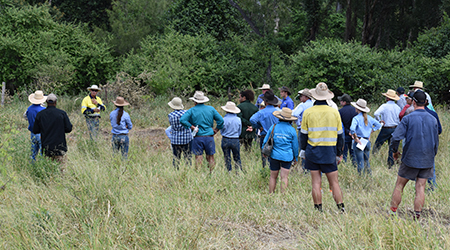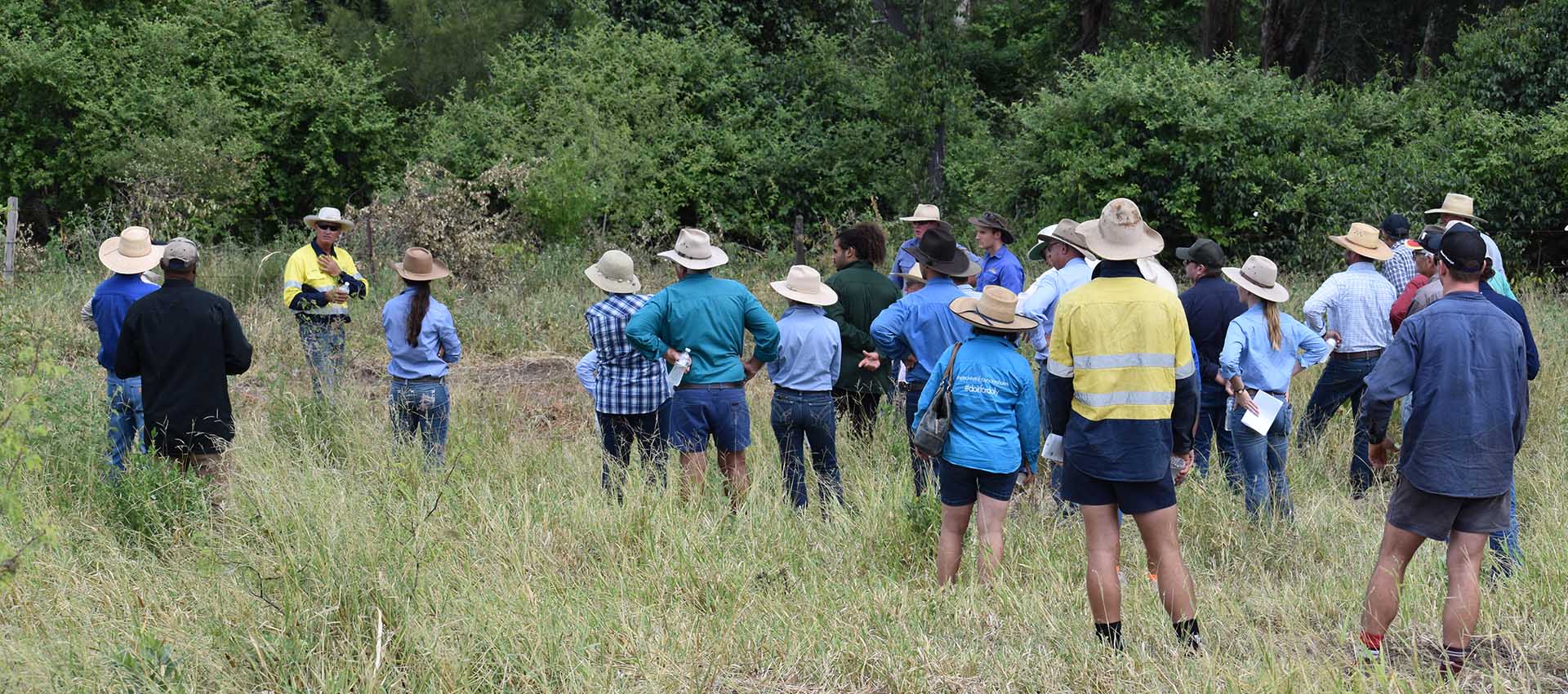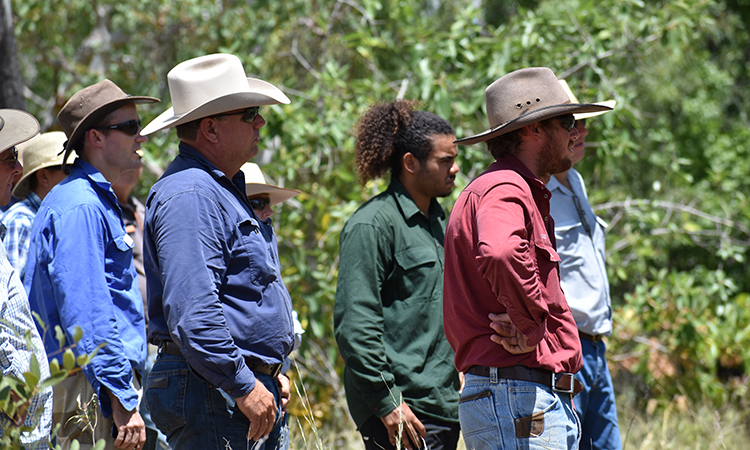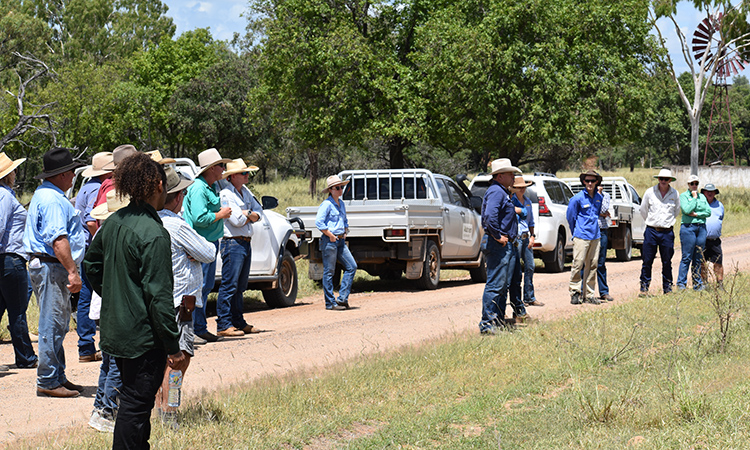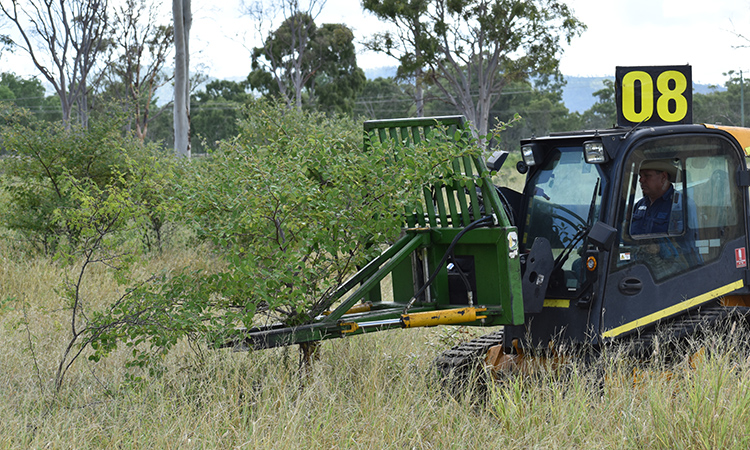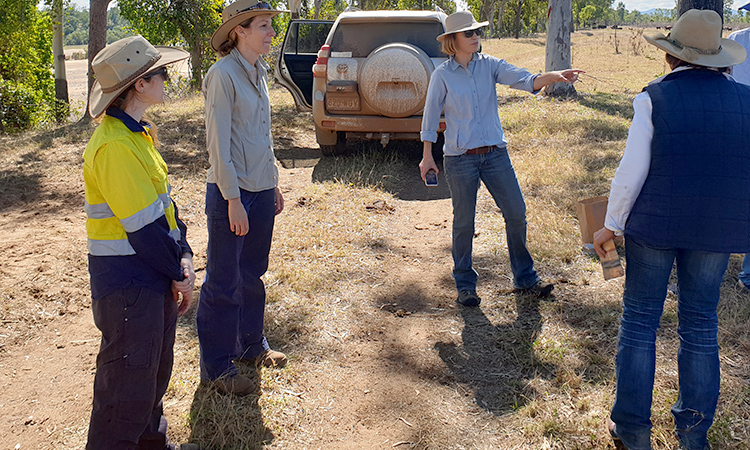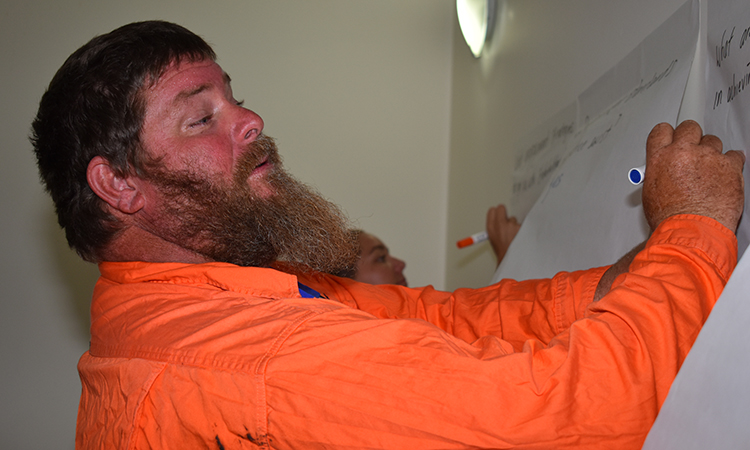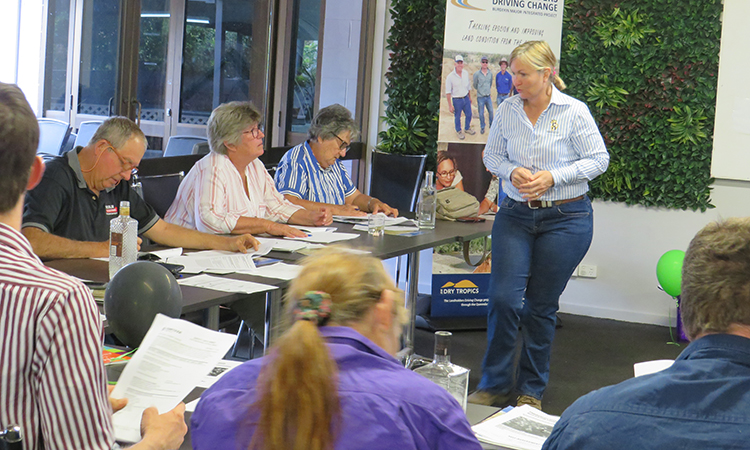Waging a never-ending battle in the war on weeds
Field day participants discuss weed management approaches on creek and riverbanks at a weeds field day at Sonoma Station.
Pictured from left, LDC’s Rodger Walker, Barry O’Sullivan, chair of the integrated catchment-wide priority weed management group (MLA Integrated Weed Management group), Solomon Minniecon, Urannah Station and Luke Woodhouse, Mt Wickham Station.
Participants at the LDC-MLA Integrated Weeds Management field day held at Sonoma Station.
Barry O’Sullivan, Glenalpine Station, demonstrates a tree puller that grabs hold of small trees then pulls them up and out completely, roots and all. Landholders indicated due to the powerful pulling performance of the attachment, they can clear large areas effectively, or use for more selective removal of saplings.
Discussing the Strathalbyn proposal to manage weeds on-site at the property are from left, Laura, DNRME, Michelle Sangricoli, DNRME, Rae Schlecht, OGBR, and with back to the camera, Dyan Hughes, of Strathalbyn Station.
Weeds are a huge cost to grazing businesses. They put productivity, the environment, and livelihoods under pressure. LDC has worked with landholders and land managers across the BBB to tackle the problem.
Weed management is an issue for all land managers. LDC’s first event, the Burdekin Dry Tropics Biosecurity forum, held in Collinsville in early 2018, reiterated this with attendees highlighting weed management as “everyone’s responsibility”.
Whitsunday Regional Council, Biosecurity Queensland, technical experts, researchers, utilities, contractors and graziers attended the forum.
Following the event, LDC and land managers committed to taking a shared ownership approach in identifying and pursuing solutions to weeds across the BBB catchment. An ambitious three-pronged approach involving cooperation between LDC’s multiple activity areas was adopted, including:
BBB Grazier Support
- To empower landholders by improving their knowledge and skills about weed control through training workshops and practical on-ground activities.
- To provide access to weeds and grazing management specialists to help landholders adopt grazing practices to help manage weeds while promoting pasture cover.
Influencing Other Land Managers and Landscape Remediation
- To provide opportunities for non-grazing land managers and local earthmoving contractors to improve their knowledge and skills about weed control through training workshops.
- To facilitate attendance to relevant workshops, field days and information sessions to come up with ideas on how non-grazing land managers could work collaboratively to treat and manage weeds.
Policy Engagement
- To organise and host forums between BBB landholders and government department officials to find workable solutions so landholders can maintain land condition (including managing weeds) while meeting regulatory obligations.
- To facilitate meetings between landholders and government to shorten delays when seeking approval for on-ground works.
The following actions have been taken:
- forming and supporting cluster groups dedicated to weed management;
- partnered with Meat and Livestock Australia (MLA) to establish a Producer Demonstration Site to focus on weed management;
- partnered with Whitsunday Regional Council to construct washdown facilities;
- conducted knowledge and training workshops; and brought graziers and government officials together to clarify weed management and vegetation regulations.
Read the update here.
Spotlight on the Bowen River Cluster Group
The Landholders Driving Change project supports two cluster groups focused on weed management.
One of these is the Bowen River Cluster Group, consisting of five neighbouring properties near Collinsville that is trialing a variety of weed management methods.
Three of the properties adjoin the Bowen River which discharges into the Burdekin River. The main focus is to control infestations along waterways and sensitive riparian areas and to develop a plan for sustainable weed control activities on riparian lands.
The group is targeting infestations of prickly acacia, belly ache, chinee apple, rubber vine and mimosa, all of which can reduce pasture growth, ultimately affecting carrying capacity of the land. Recently, grewia has been added to the list because it’s becoming more common. Grewia is currently not declared a weed, but controlling it is recommended, and the cluster group is keen to trial ways to ensure it is kept under control.
A scattergun, turbo mister and boom spray are being trialled. All cluster group members have attended accredited chemical training and one member has attended workshops outside of the BBB catchment to access specialist help with regard to best practice application methods for riparian areas. Treated sites are being monitored. Group members are sharing results with other graziers in the catchment area, as well as at weed-focused field days.
Indigenous employment group Three Big Rivers recently spent a week with the cluster group to help carry out weed control. Members are gaining practical skills working on NQ Dry Tropics projects across North Queensland, while undertaking an accredited environmental training program.
NQ Dry Tropics has partnered with Three Big Rivers on the Healing Country initiative, funded through the Queensland Government’s $10 million Reef Assist program.
Lindsay Mackie, Collinsville Depot WRC Works Supervisor contributes to the discussion during a workshop
Chemical handling training to enable people to tackle weeds on their property. Belinda Callanan from TH9 Outdoor Services delivered the course.

